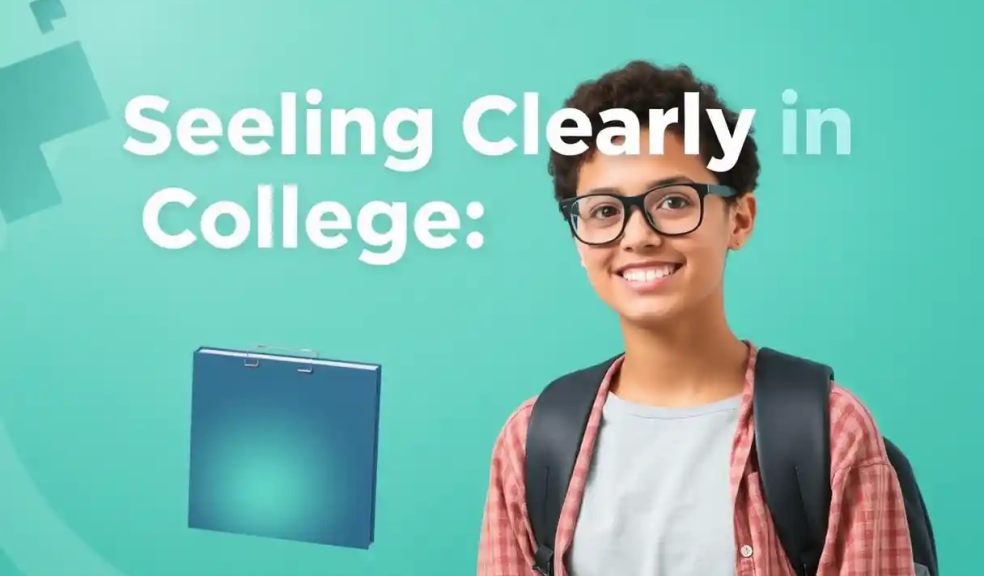
Seeing Clearly in College: Why Vision Care Should Be Part of Every Student’s Health Plan
College is a time of intense personal and academic growth, filled with late-night study sessions, digital coursework, and constant screen exposure. Amid the flurry of assignments and social events, eye health is rarely at the top of students' minds. Yet, good vision is foundational to learning, wellness, and long-term health. For university students, integrating vision care into a broader health plan isn’t just beneficial—it’s essential.
The Hidden Effects of Student Lifestyles on Eye Health
University life inherently encourages behaviors that can strain the eyes. From extended screen use during online classes to binge-watching lectures or social media at night, digital devices dominate the college experience. This persistent exposure to artificial light, especially blue light, can disrupt circadian rhythms, contributing to sleep issues and eye fatigue.
Poor dietary habits also contribute. When time is limited and budgets are tight, meals are often grabbed on the go, with nutritional value taking a backseat. Vitamins A, C, and E, omega-3 fatty acids, and zinc play a role in supporting retinal health and preventing oxidative damage, yet they’re frequently lacking in typical student diets.
These lifestyle factors don’t just cause temporary discomfort. Left unchecked, they can lead to chronic eye strain, accelerated myopia progression, and even long-term vision complications.
Symptoms College Students Often Ignore
In the hustle of student life, minor vision issues are easy to overlook. Blurred vision during lectures? It’s probably just tiredness. Dry, itchy eyes after a full day of screen time? Just allergies. Unfortunately, dismissing these signs can allow underlying problems to go undiagnosed.
Students commonly report:
- Frequent headaches
- Difficulty focusing on close-up or far-away objects
- Excessive squinting
- Double vision
- Light sensitivity
These symptoms, while seemingly benign, could point to developing conditions such as digital eye strain, refractive errors, or even more serious concerns like early glaucoma or corneal inflammation. Recognizing and responding to these cues early can prevent progression and support better academic outcomes.
Beyond Glasses: What an Eye Exam Can Reveal
While many think of eye exams simply as a means to get new glasses or contacts, they serve a far broader purpose. A comprehensive eye exam can reveal health issues that may not present with obvious symptoms, especially in young adults who often feel invincible.
Ophthalmologists and optometrists are trained to detect:
- Early signs of diabetes or high blood pressure
- Autoimmune disorders affecting the eyes
- Neurological issues presenting as visual disturbances
Through detailed examination of the retina, optic nerve, and eye muscle function, eye professionals can uncover conditions long before other symptoms emerge. This makes regular eye exams a critical component of preventive care—ideally scheduled every one to two years, even for those with no known vision problems.
Preventive Strategies That Fit a Student’s Schedule
Maintaining eye health doesn’t have to be time-consuming. With a few smart habits, students can protect their vision while navigating their packed schedules.
Practice the 20-20-20 Rule: Every 20 minutes, take a 20-second break to look at something 20 feet away. This simple technique helps prevent digital eye strain by encouraging the eyes to refocus.
Adjust Your Study Environment: Good lighting is key. Avoid studying in dim light and make sure your computer screen is positioned at eye level and at an appropriate distance to reduce neck and eye strain.
Prioritize Hydration and Rest: Dry eyes are often exacerbated by dehydration and sleep deprivation. Drinking enough water and getting at least 7–8 hours of sleep per night support tear production and cellular repair.
When to Seek Specialist Care
There’s a common misconception that all eye care professionals provide the same services. While optometrists are essential for routine eye exams and vision correction, ophthalmologists offer specialized medical and surgical care. They’re the go-to experts for more complex issues like infections, trauma, or unexplained vision loss.
University students—particularly those with underlying conditions, contact lens discomfort, or persistent symptoms—may need more advanced evaluations. Given the growing digital demands of university life, it’s not unusual for students to search for an ophthalmologist Evanston to manage eye strain, vision changes, or preventive care.
Having access to local, specialized professionals ensures that emerging problems can be addressed quickly and thoroughly before they impact academic performance or long-term vision.
Affordable Eye Care Options for College Students
Cost is often a barrier that deters students from seeking care, but there are affordable options available. Most university health centers offer basic vision screenings, and many campuses partner with local providers for discounted services. Students may also be covered under family insurance plans that include vision benefits.
Additionally, there are retail chains and community clinics that provide exams and glasses at student-friendly prices. The key is knowing what services are included in each offering and ensuring that a “cheap” option doesn’t mean sacrificing the quality of care.
Some practical tips include:
- Checking with your student health center about covered vision services
- Using Flexible Spending Accounts (FSAs) for exams or eyewear
- Asking local providers if they offer student discounts or payment plans
Conclusion
Eye health isn’t just a concern for older adults—it’s a vital aspect of student wellness that influences learning, safety, and day-to-day comfort. In a world where students are constantly plugged in, proactive vision care is one of the smartest investments they can make for academic and personal success.
By staying alert to early symptoms, making simple daily adjustments, and scheduling regular eye exams, college students can protect their vision for the long haul. In the broader scope of university health planning, the eyes deserve a closer look—quite literally.













